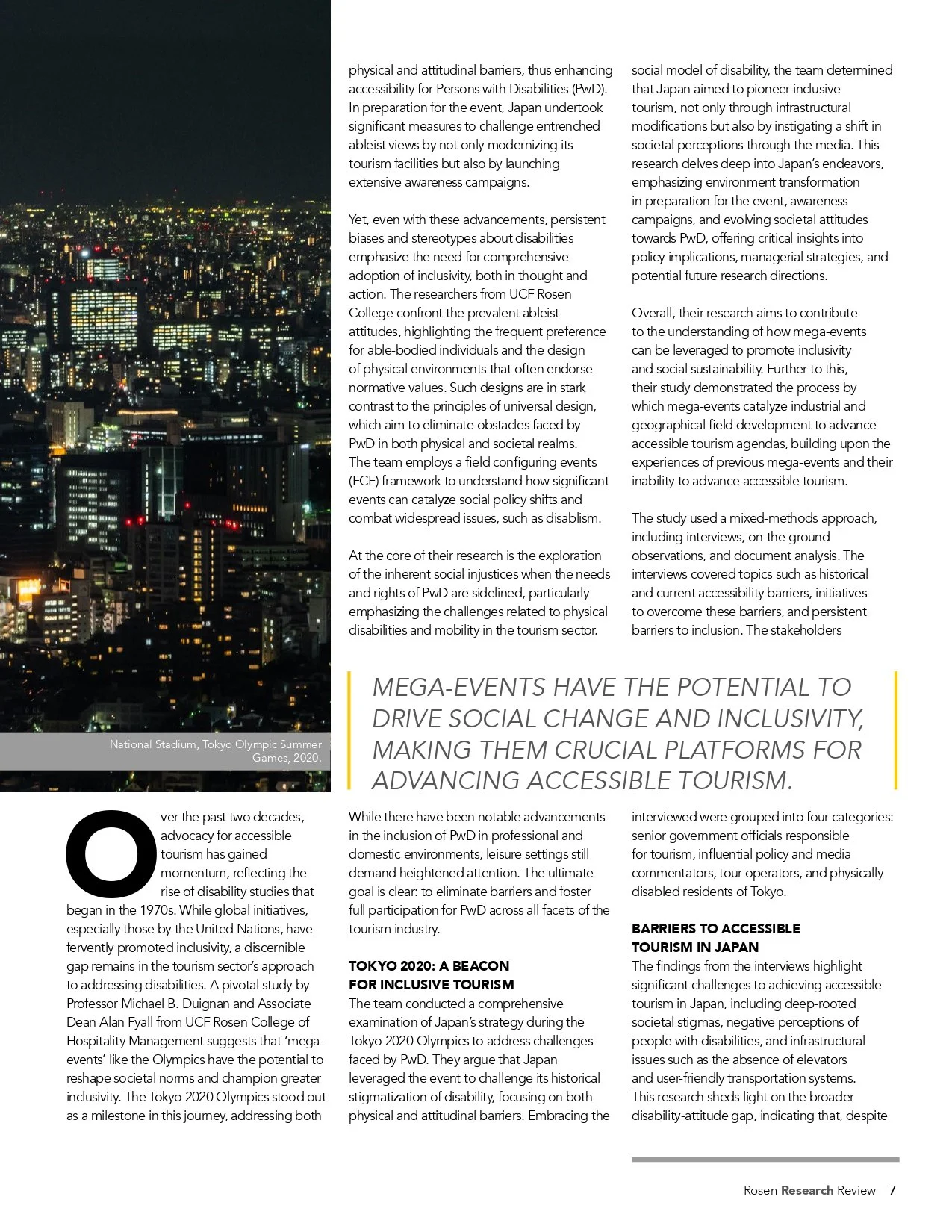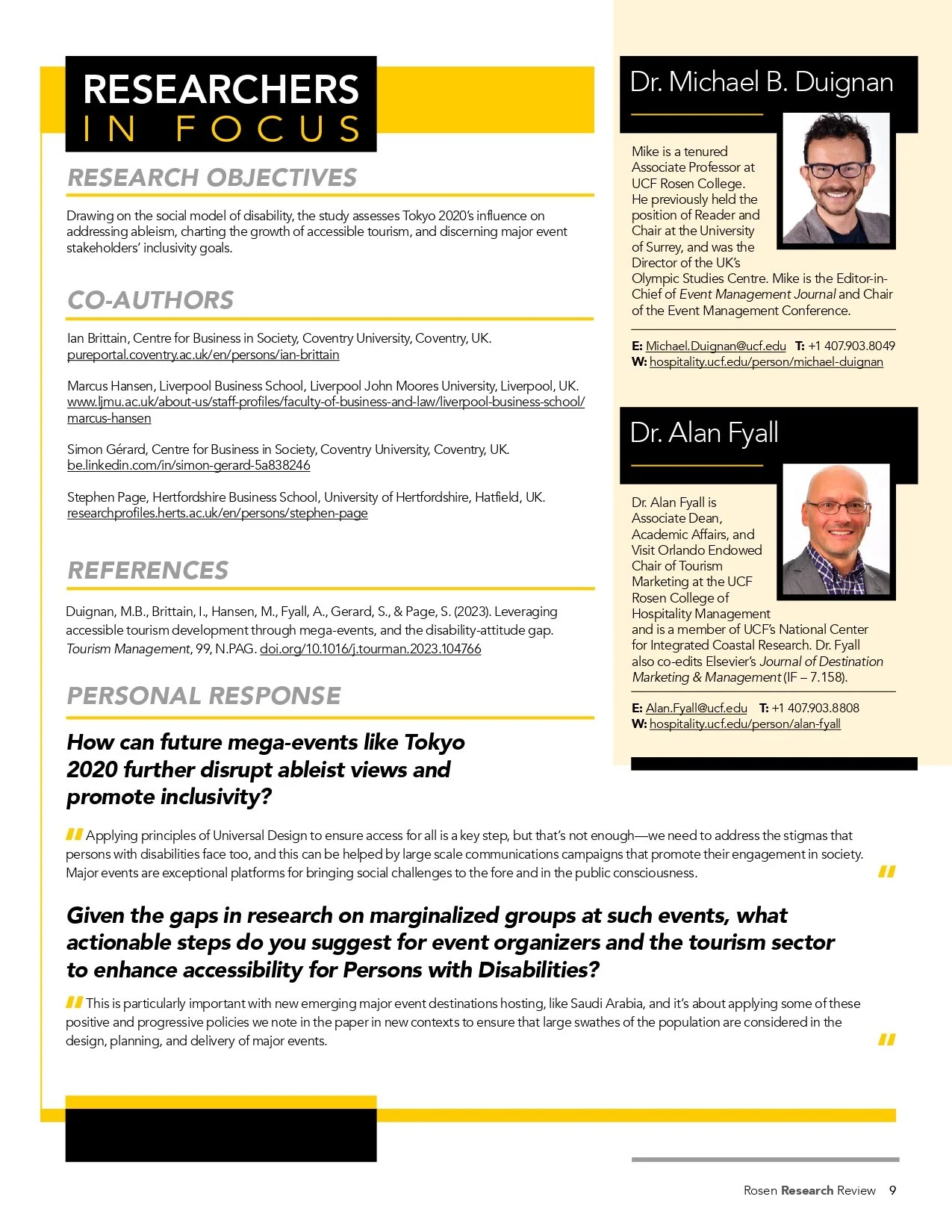Leveraging accessible tourism development through mega-events, and the disability-attitude gap
Abstract
Able-bodied, and increasingly people with disabilities, represent a key audience for mega-events; occasions that act as crucibles where social problems endemic to host destinations can be exposed and tackled through targeted social policy. Drawing on the social model of disability, the paper examines how Japan utilised Tokyo 2020 as a field configuring event to disrupt systems of ableist thinking and tackle physical and attitudinal barriers restricting Persons with Disabilities (PwD) to accessible tourism. Qualitative evidence reveals national commitments to relegitimise, improve accessibility for - and acceptance toward - PwD in Japanese society, through transformations to the built environment, national awareness, and educational campaigns in the build up to Tokyo 2020. An over-emphasis on physical as opposed to social structural change mean negative attitudes often persist, where disability remains stigmatised, leading to PwD immobility and social exclusion. Our policy recommendations and managerial implications, alongside research directions attend to this disability-attitude gap.
Reference
Duignan, M.B., Brittain, I., Fyall, A., Hansen, M., Gerard, S., and Page, S. (2023). Leveraging accessible tourism development through mega-events, and the disability-attitude gap. Tourism Management, https://doi.org/10.1016/j.tourman.2023.104766 (Open Access).
Resources



